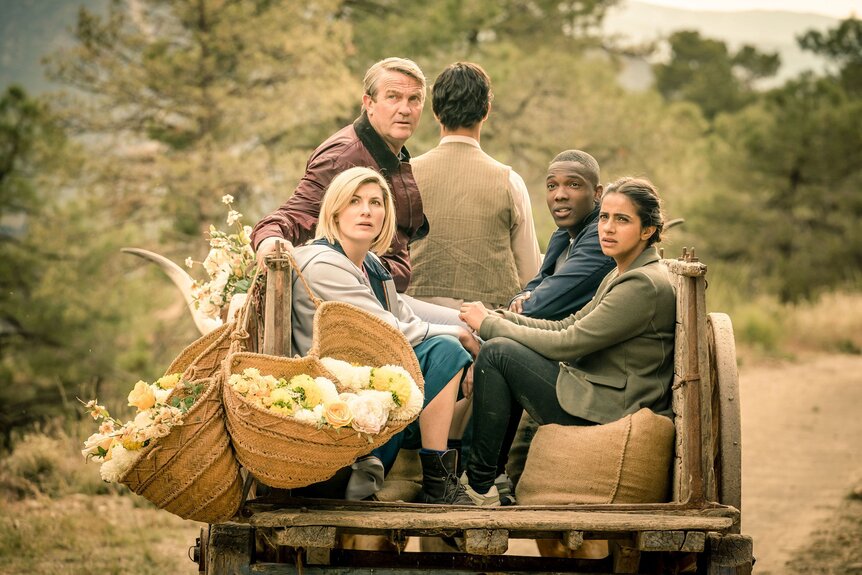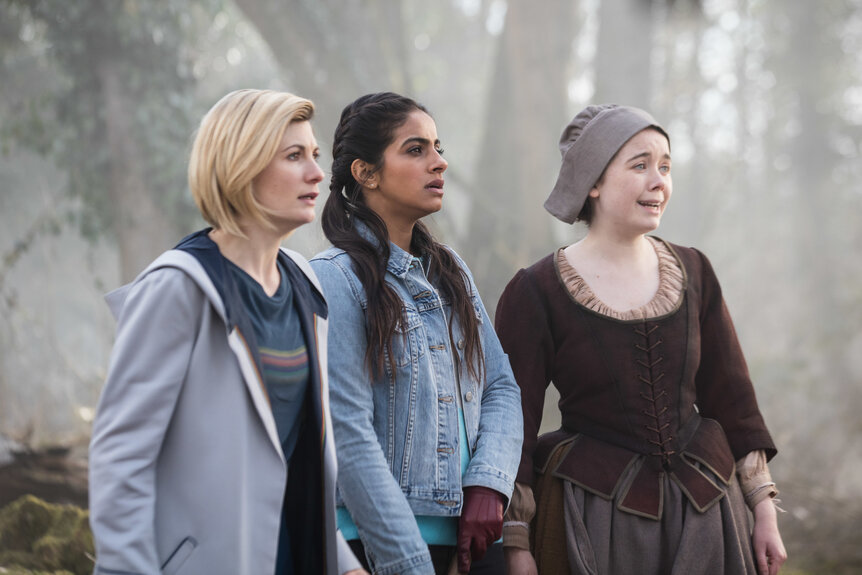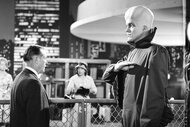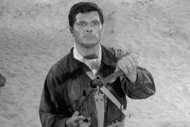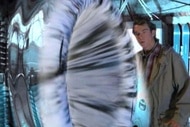Create a free profile to get unlimited access to exclusive videos, sweepstakes, and more!
Doctor Who is going big on a classic element again and here's why that's awesome
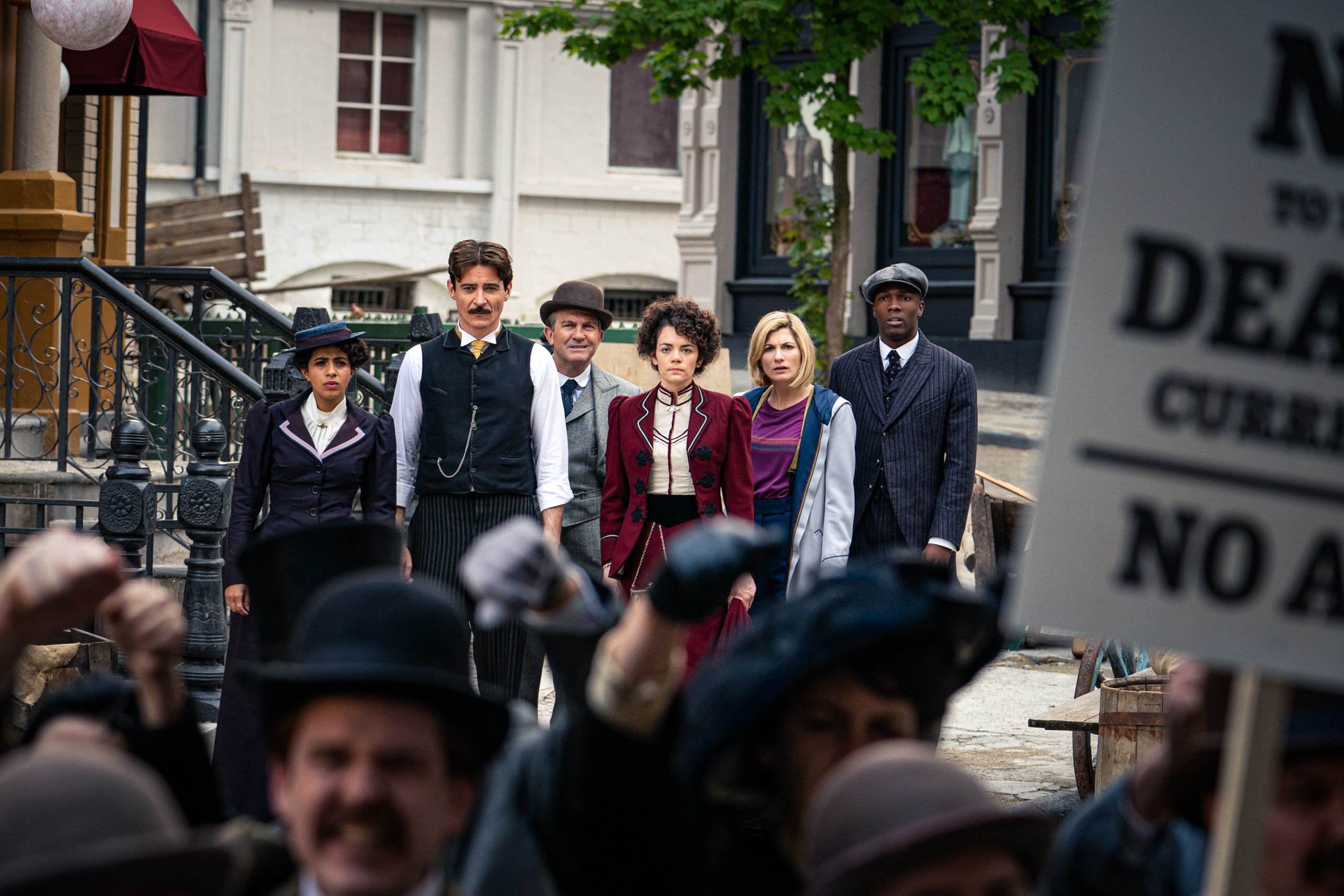
Doctor Who has always been a show that contains multitudes. It's a series that's more than capable of swinging for the fences, telling big, complex science fiction stories with epic stakes and the fate of the universe hanging in the balance. It's equally good at telling quiet tales of loneliness and loss, about what it feels like to carry grief around for centuries. It's a story of adventure and wonder, of possibility and hope. And it's often a cautionary tale, a reminder about what our futures could look like if we don't embrace peace or work together to save our planet.
It's also a show that just might teach you something, if you let it.
Yes, despite the fact that Doctor Who is a show full of menacing genocidal pepper pots and a time machine shaped like a blue British police call box from the 1960s.
But when Doctor Who first began back in 1963, it was originally conceptualized as an educational series for children, a show that focused on science and history rather than space adventures. The First Doctor's original companions — Ian Chesterton and Barbara Wright — were teachers in those respective subjects, and the series regularly told strictly historical stories that didn't feature any aliens or science fiction elements at all.
"Pure" historicals like this were ultimately filtered out of the show by the mid-'60s, as the powers that be decided that audiences were tuning in for all the stuff with the Daleks rather than a trip with Marco Polo down the Silk Road. But the show never lost its taste for mixing the historical with the fantastical, and has continued telling stories about famous figures and cultures from the past — with some sci-fi stuff thrown on top — throughout its run.
Which honestly makes a lot of sense from a narrative perspective. The Doctor does have a time machine, after all. Which of us wouldn't want to see some famous moment or meet a particularly interesting or influential person from history? (Mine's Geoffrey Chaucer, for what it's worth. Where's my Canterbury Tales episode?)
Along the way, we've met a variety of historical figures, including William Shakespeare, Charles Dickens, Vincent van Gogh, and Queen Victoria. But even episodes set in the past still featured monsters, rival Time Lords or some other external problem that needed to be solved, and those were the true driving forces of each story, not necessarily the historical trappings or time periods our heroes found themselves in. In the post-2005 reboot era, these sorts of stories generally seemed to pop up roughly once every season or so, as new companions asked to see the past in real life, Winston Churchill decided to try and use Daleks as a weapon, or a monster underneath the Thames started eating children during the 1814 Frost Fair.
But since Chris Chibnall took over the show in 2018, history-based stories have become much more commonplace, and much more interesting. During the brief two seasons that he's been holding the reins of Doctor Who, we've seen four distinct episodes set in the past thus far, as well as another that gave multiple famous historical characters important roles in its present-day plot. (Even if they all got their memories erased at the end.) It seems clear that this sort of story is an important part of Chibnall's overall vision for what he wants Doctor Who to be; his show isn't just a space adventure, it's meant to leave the world a bit better than it found it.
Chibnall's Who wants to teach us something. Sometimes, those lessons involve big things, like educating British viewers on aspects of the American Civil Rights movement or reminding the world that the Partition of India happened, the latter an event that was generally horrible and whose consequences are still being felt today. Thus far, Season 12 has primarily favored smaller moments, introducing such groundbreaking but largely misunderstood figures as mathematician Ada Lovelace, World War II wireless operator Noor Inayat Khan, and inventor Nikola Tesla to its audience and highlighting some of their many accomplishments, even as the show weaves those facts into its larger story.
For example, Tesla really did try to communicate with Mars. Doctor Who just asks the question what might have happened had something or someone answered him back.
Under Chibnall's leadership, the show is often as educational as it is entertaining, and usually both of those things at the same time. These are, of course, very different goals than those belonging to Chibnall's immediate predecessor.
Steven Moffat's Doctor Who was big and sweeping. It told messy, complicated, and complex stories with so many moving pieces it was impossible to satisfactorily resolve everything in the space of one hour. (Or sometimes even a single season.) His plots favored shocking twists and huge stakes, and even the most mundane of Moffat episodes swung for the fences in a way few head writers have before, for good and for ill.
Chibnall's Who is different. Focused on smaller stories with less obvious stakes, this incarnation of the series has gone back to basics in a serious way. The Thirteenth Doctor era is primarily and deeply character-driven, interested in both exploring the ways that coming into contact with the Doctor's world impacts various secondary characters, and the way that the presence of the Doctor herself affects the world around her.
This matters more than ever before, too, because the Doctor is a woman now.
In earlier seasons, we've seen Doctor Who acknowledge the difficulties that traveling into the past can pose for women and people of color. Companion Martha Jones expressed concerns about visiting Shakespearean England as a black woman, and so did Bill Potts when the Twelfth Doctor took her off to Victorian London. These problems were largely addressed by the fact that these women traveled with a powerful man, allowing the series to generally avoid reckoning with the uncomfortable way history often treats anyone who isn't white and male.
Now, with Jodie Whittaker playing the Doctor, it's impossible for the series to ignore the implications and problems inherent in a woman — and a woman of power and command, at that — traveling back to the past. And Doctor Who is all the better for finally choosing to engage with these issues rather than handwave them away.
Season 11's "The Witchfinders" is perhaps the best example of this, in which our heroes travel back to the time of King James I, only for Thirteen to find herself almost immediately accused of witchcraft. Given how obsessed with witches James Stuart was in real life, this isn't surprising at all. What's truly shocking is that it's taken this many regenerations for someone to name the Doctor, with the magical sonic screwdriver and disappearing blue box, a practitioner of the dark arts. Weird how that doesn't happen until he is suddenly a she, right?
Doctor Who is not only interested in educating us about historical fact, though that's clearly something Chibnall really enjoys weaving through his stories. It also wants to show us a different set of experiences from our own — what it's like to navigate Jim Crow America as a person of color, to experience misogyny firsthand throughout history, and to watch one's homeland be torn apart by faceless white strangers who will never see it. Doctor Who isn't just a show about time travel — it's a show about people. Acknowledging the history of those people, for good and ill, and the experiences who make them who they are, is an equally important part of the journey.
